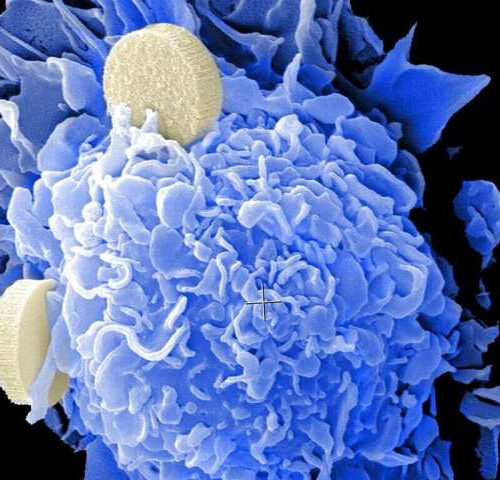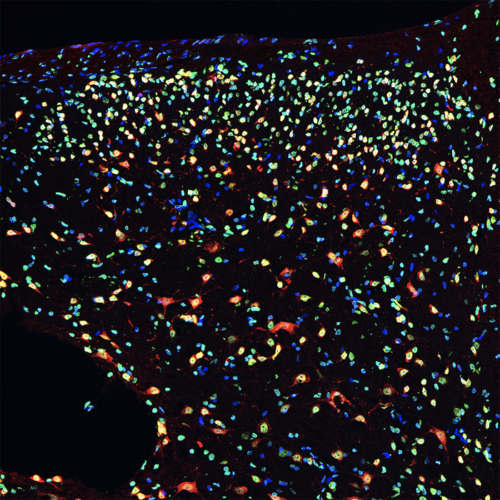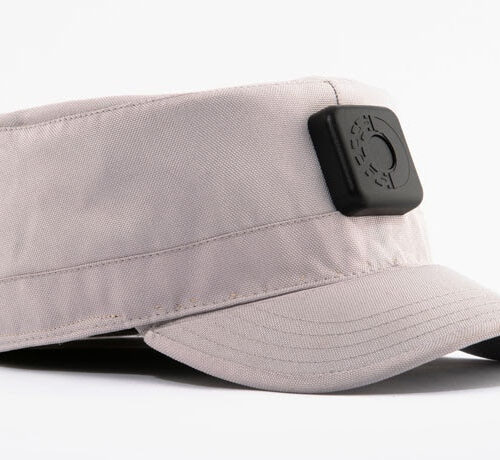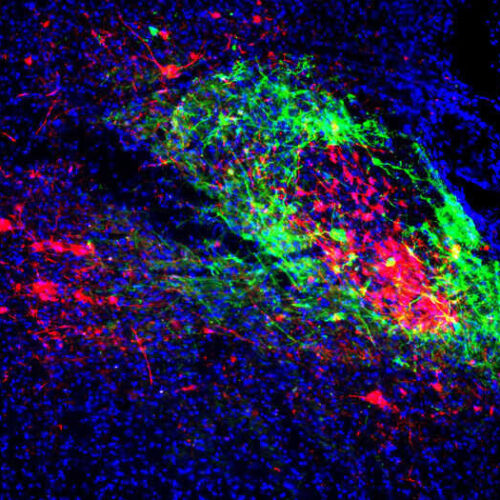by University of Texas Health Science Center at Houston Sunil A. Sheth, MD, associate professor of neurology with McGovern Medical School at UTHealth Houston. Credit: UTHealth Houston Using a 1-millimeter-sized wireless implant to stimulate peripheral nerves from within blood vessels has the potential to treat neuropathic pain resistant to medical therapy, according to a team...
Category: <span>Pain/Inflammation</span>
Survey finds nearly 1 in 5 Americans experience pain with exercise and continue to work out rather than resting to heal
by Orlando Health Dr. George Eldayrie uses ultrasound to examine Jen Jordon’s knee at Orlando Health Jewett Orthopedic Institute. While many put off addressing an injury for fear of being sidelined or learning they’ll need surgery, there are plenty of non-surgical treatment options that work better the sooner they’re started. Credit: Orlando Health Jewett Orthopedic...
Chronic low back pain linked to atrophy in pain-related brain regions
WOLTERS KLUWER HEALTH March 29, 2022 – Chronic low back pain (CLBP) is associated with reductions in brain volume in areas involved in pain processing, reports a study in PAIN®, the official publication of the International Association for the Study of Pain (IASP). The journal ispublished in the Lippincott portfolio by Wolters Kluwer. “These findings suggest that CLBP...
How chronic pain arises
HEIDELBERG UNIVERSITY IMAGE: SECTION OF MOUSE DORSAL HORN SPINAL CORD. BLUE MARKS CELL NUCLEI, RED THE NEURONS. GREEN HIGHLIGHTS THE ACETYLATION LEVEL OF HISTONE 3, USED TO MEASURE THE ACTIVITY OF HDAC4. CREDIT: DANIELA MAUCERI One epigenetic factor as well as one organic anion transporter (OAT1), whose function in the nervous system was hitherto unknown,...
Tick saliva drug could ease chronic pain and itching in people
by Durham University Credit: Unsplash/CC0 Public Domain A protein found in tick saliva could be turned into a drug that eases itching and chronic pain in people. New research has shown that the protein—called Votucalis—provided pain and itch relief in research involving mice. The findings from Durham and Newcastle Universities, in collaboration with pharmaceutical company Akari Therapeutics...
‘Encouraging’ New National Data on Chronic Pain Management
Megan Brooks February 10, 2022 Most adults in the US who have chronic pain favor a combination of non-drug and non-opioid approaches to control their pain, which is “encouraging,” new research shows. A national survey reveals 55% of adults with chronic pain used pain management techniques that did not involve any opioids at all during...
Younger age at first menstrual period linked to chronic pain in women, reports study in PAIN(R)
WOLTERS KLUWER HEALTH March 4, 2022 – Women who were younger at the time of their first menstrual period (menarche) are more likely to report chronic pain in adulthood, reports a study in PAIN®, the official publication of the International Association for the Study of Pain (IASP). The journal is published in the Lippincott portfolio by Wolters Kluwer. “[W]e found strong associations...
Wearable Neuromodulation Device Launched by Teen Siblings
Laird Harrison January 07, 2022 A portable neuromodulation device can put the user in a meditative state with the potential to ease chronic pain, according to its teenage inventors. The Fluxwear Shift pulses electromagnetic energy into the user’s brain, synchronizing neurons in patterns that resemble meditation, said Kamran Ansari, the company’s 16-year-old CEO. The low-level...
On a mission to alleviate chronic pain
About 50 million Americans suffer from chronic pain, which interferes with their daily life, social interactions, and ability to work. MIT Professor Fan Wang wants to develop new ways to help relieve that pain, by studying and potentially modifying the brain’s own pain control mechanisms. Her recent work has identified an “off switch” for pain,...
A brain circuit linking pain and breathing may offer a path to prevent opioid deaths
December 22, 2021 6:00 AM ET JON HAMILTON Shell neurons (green) project to the breathing center and core neurons (red) project to the pain/emotion center. Brain scientists have found the two are linked, shedding new light on opioid overdoses Salk Institute When people feel pain, they tend to breathe faster. When they take an opioid...






